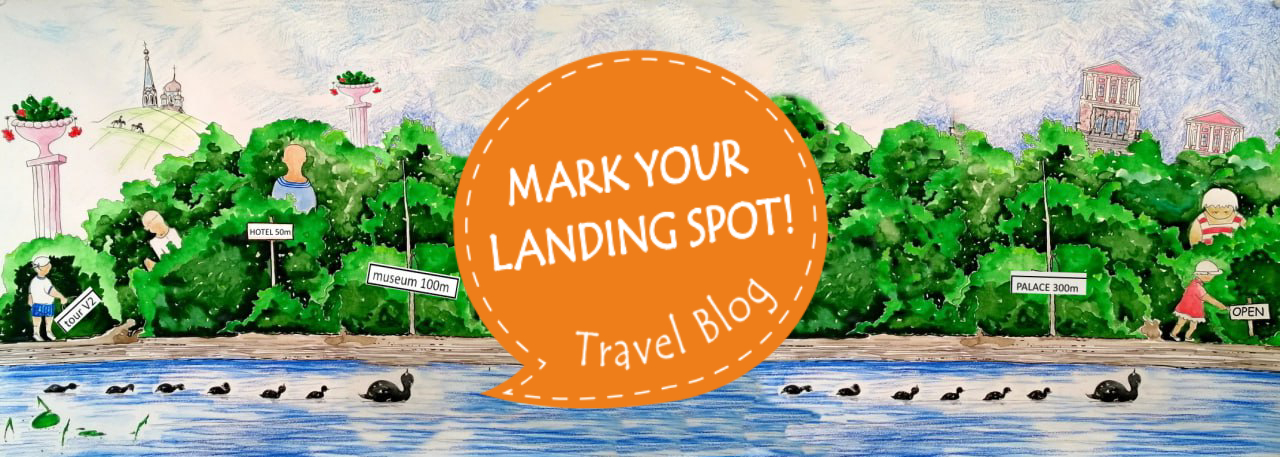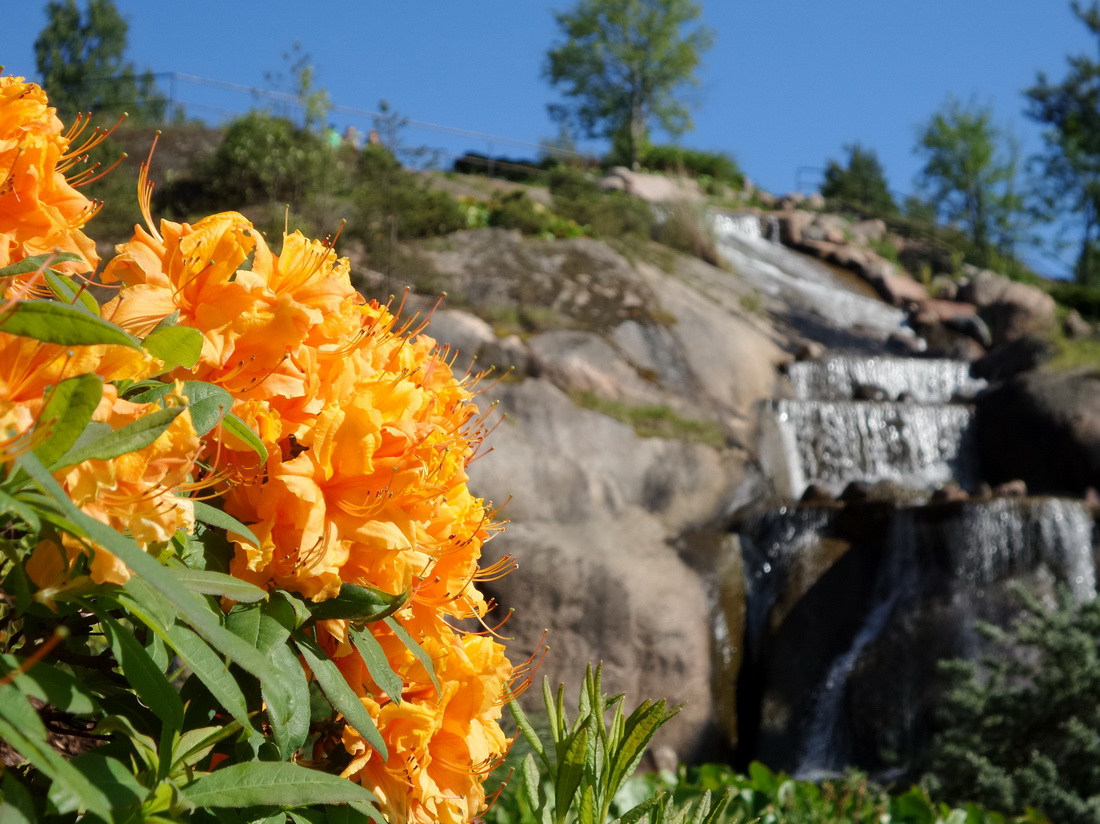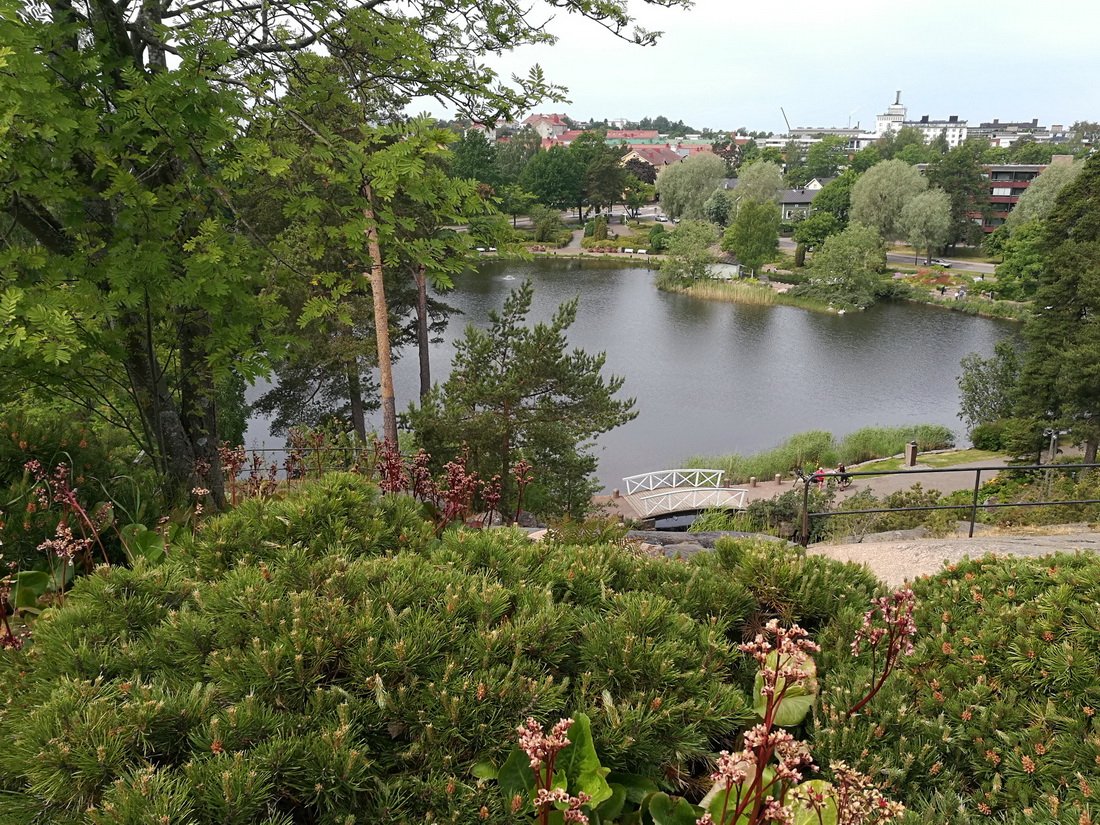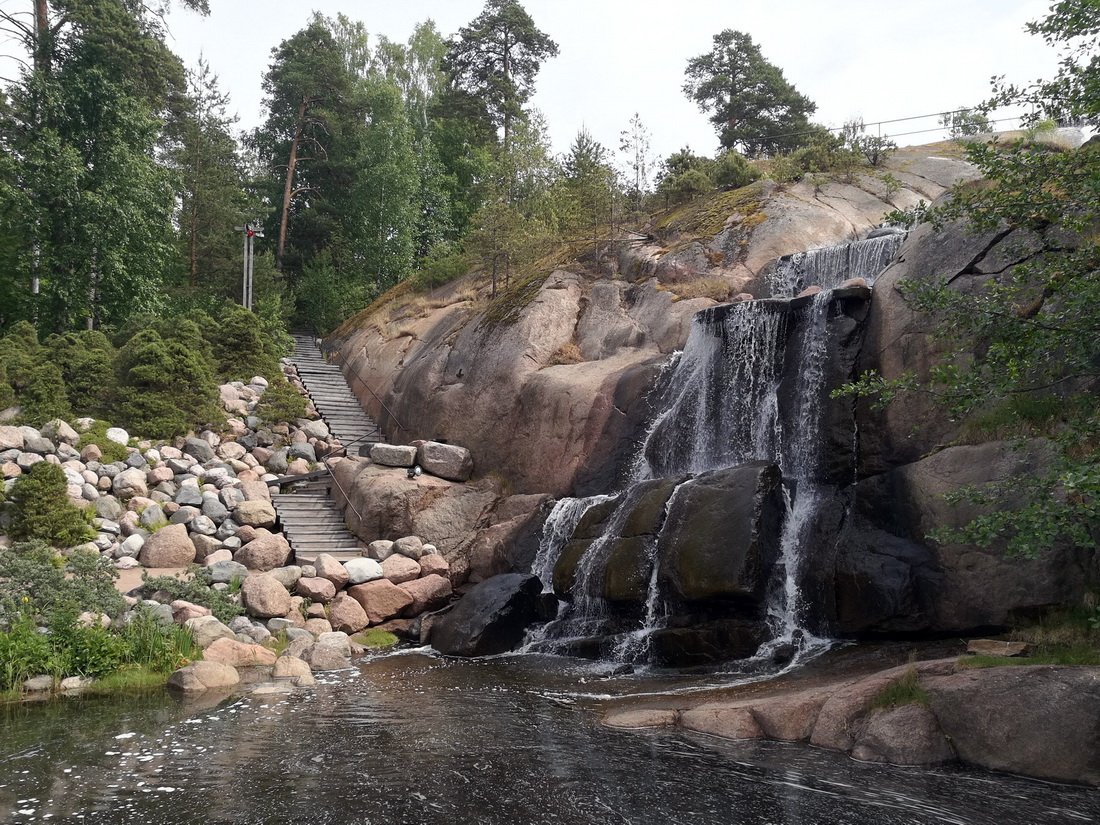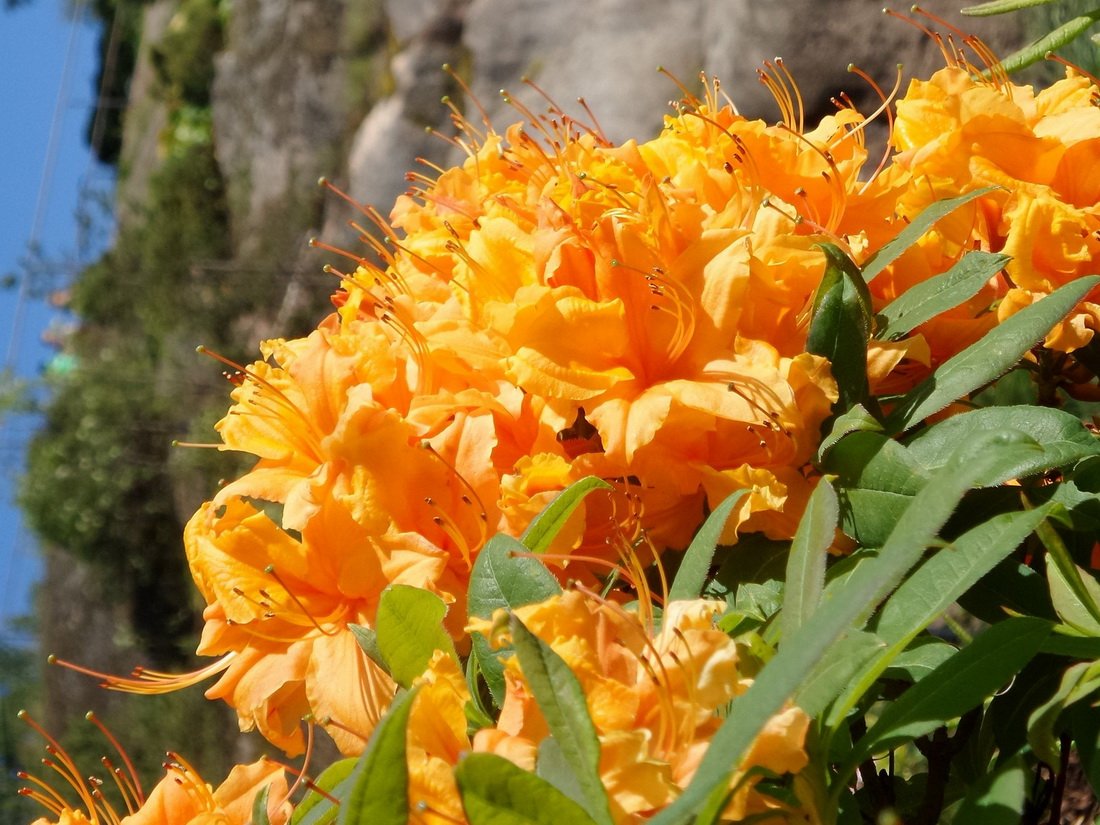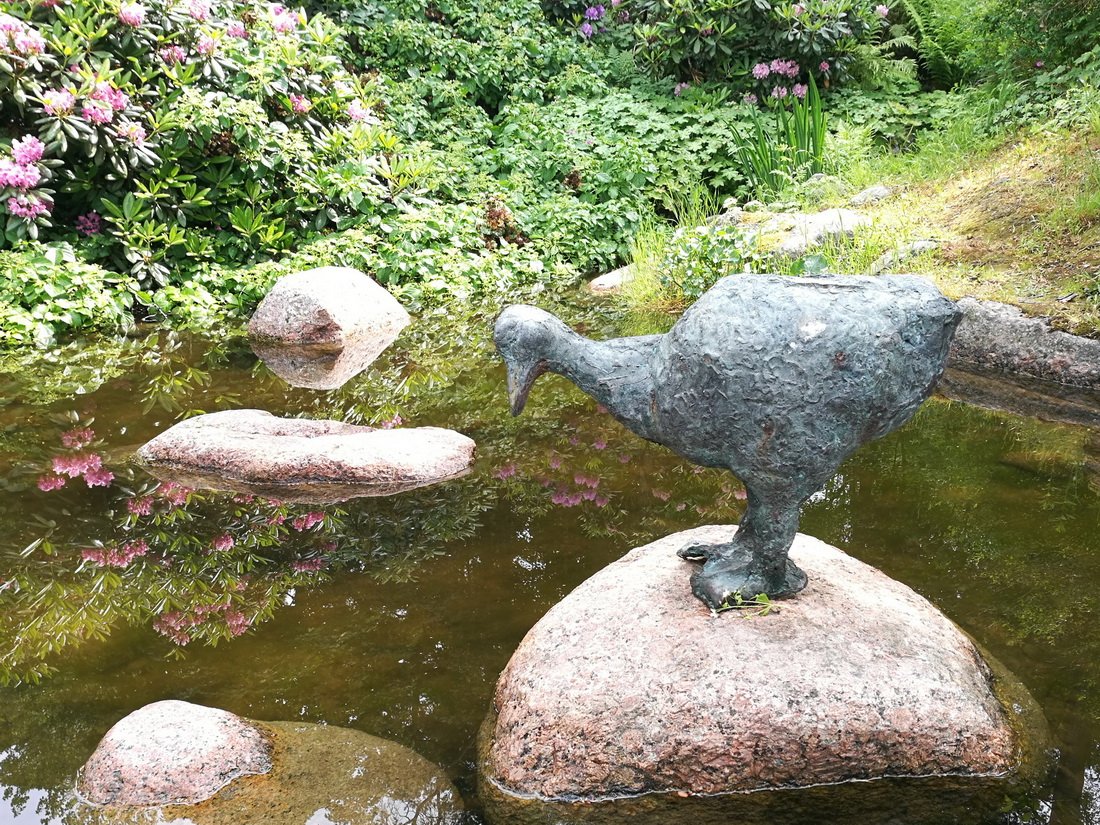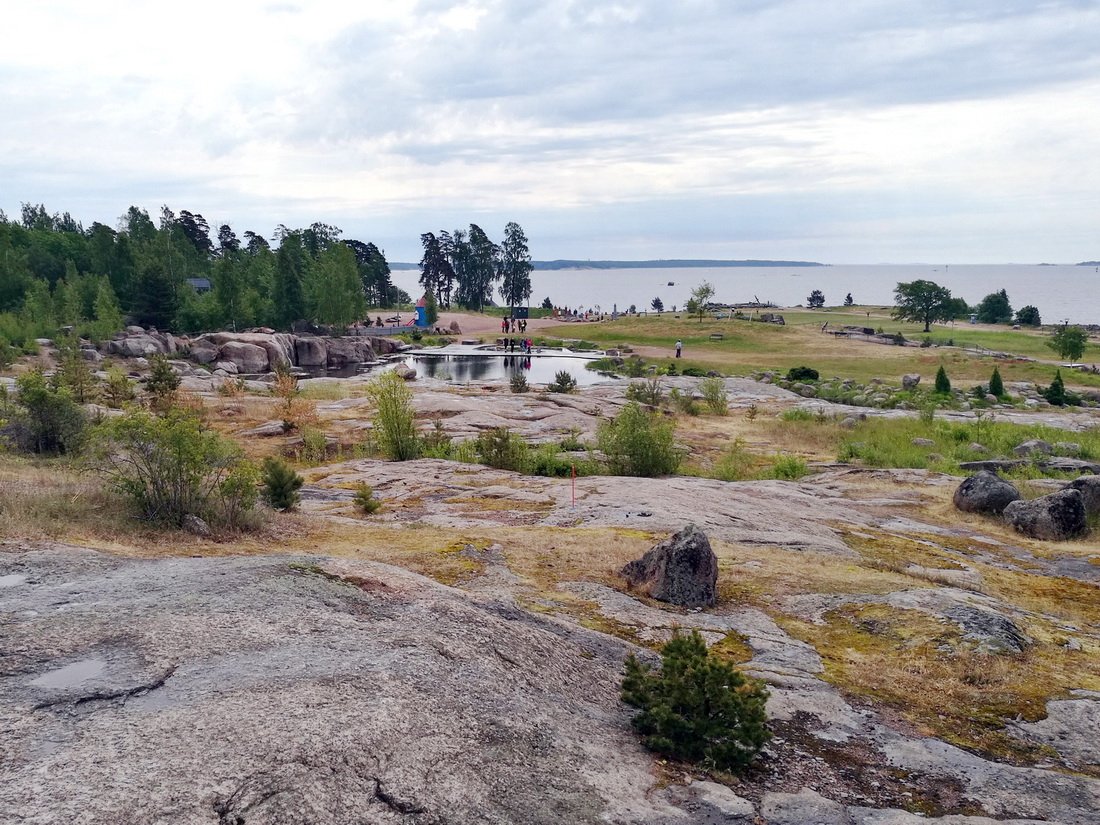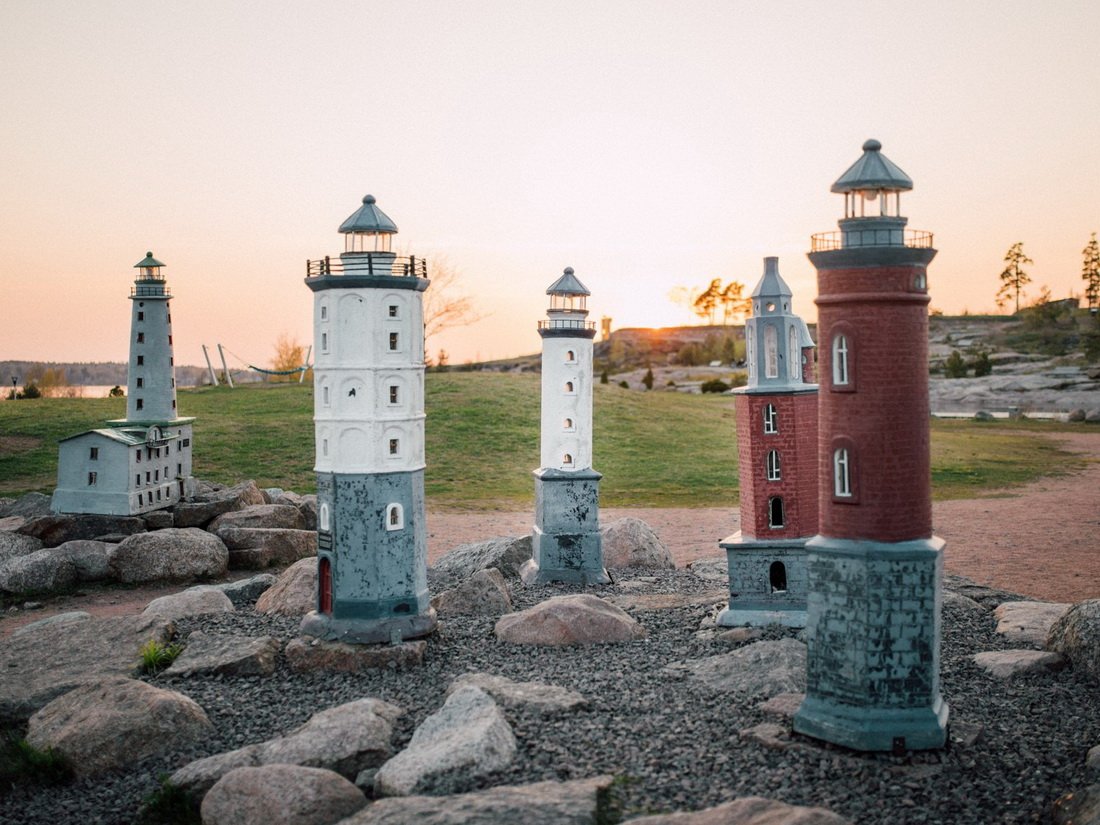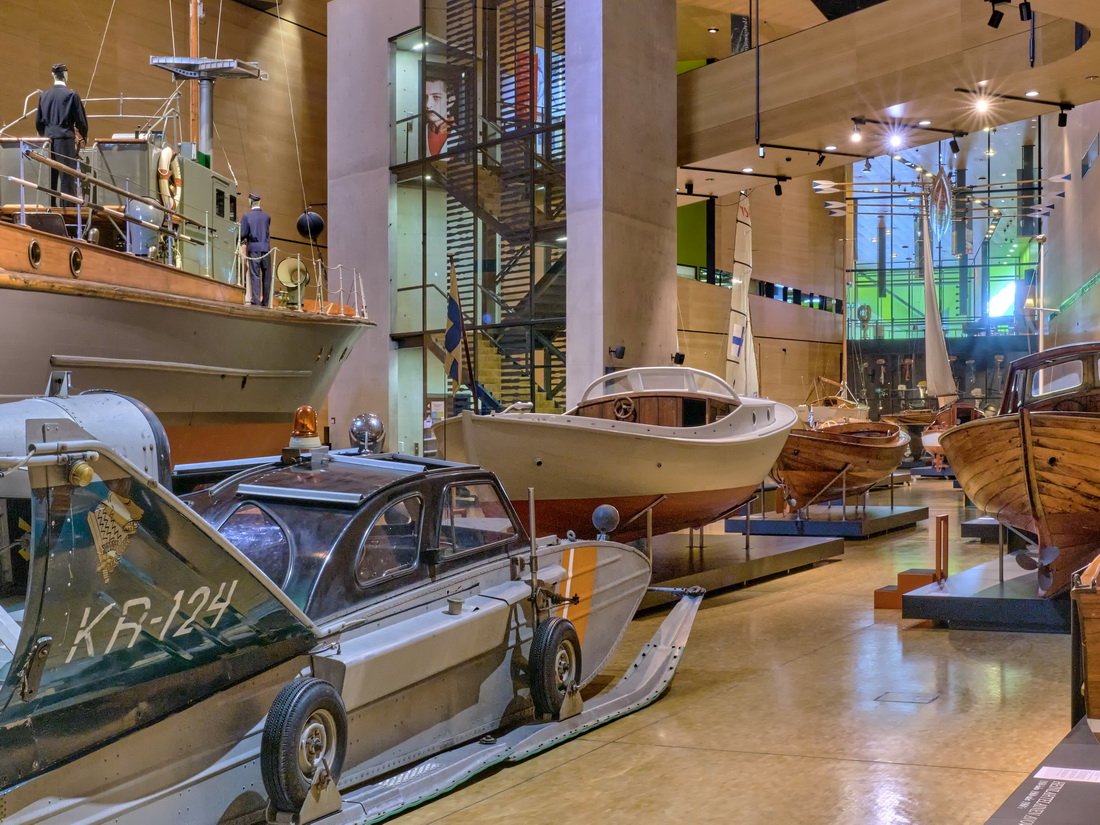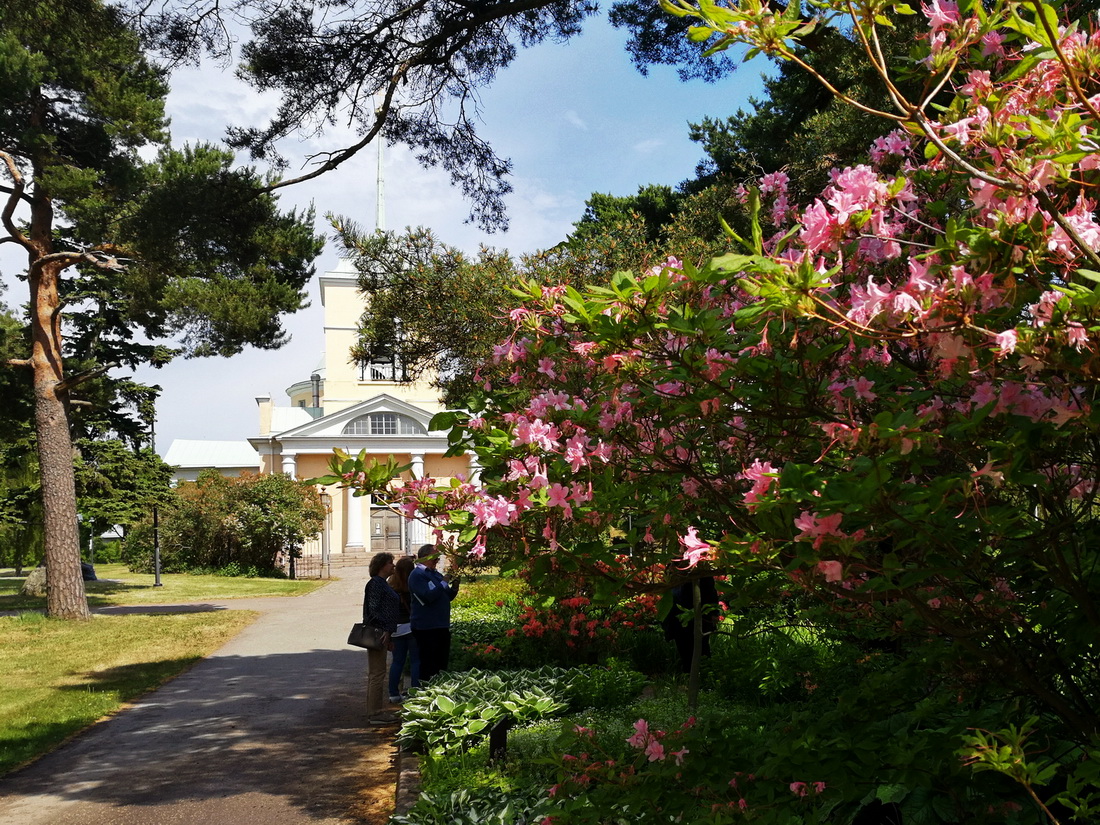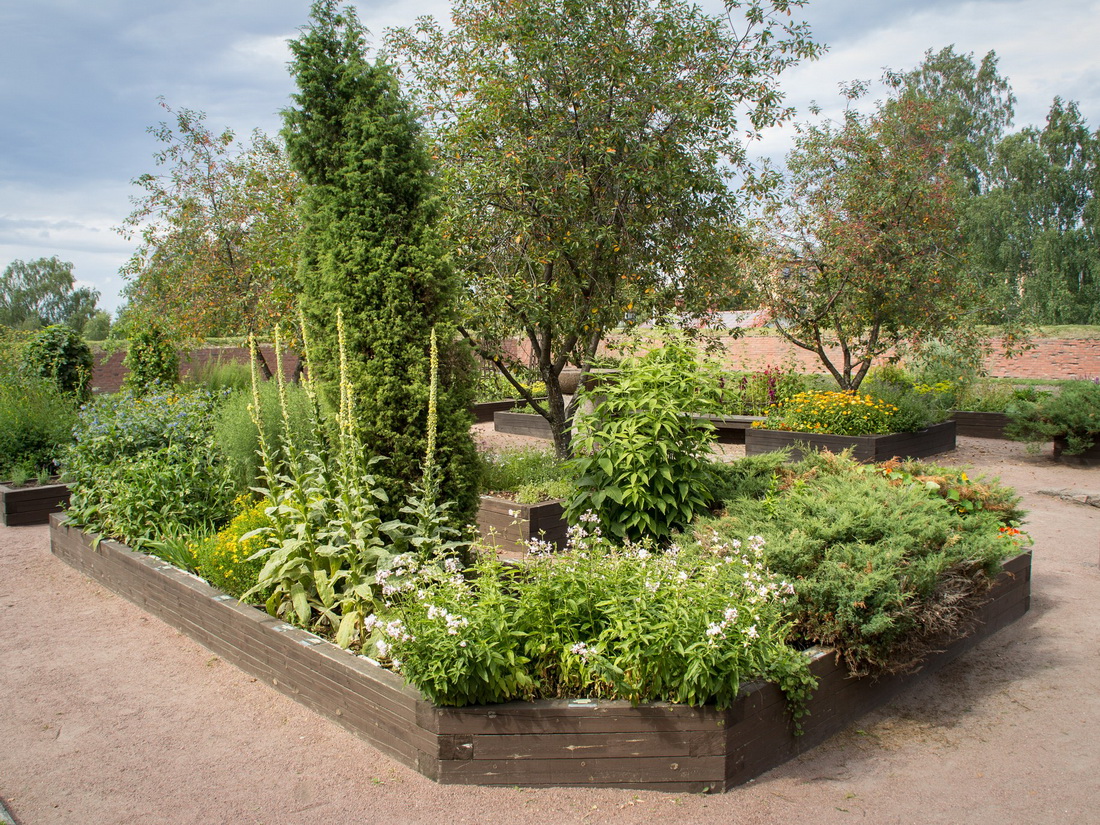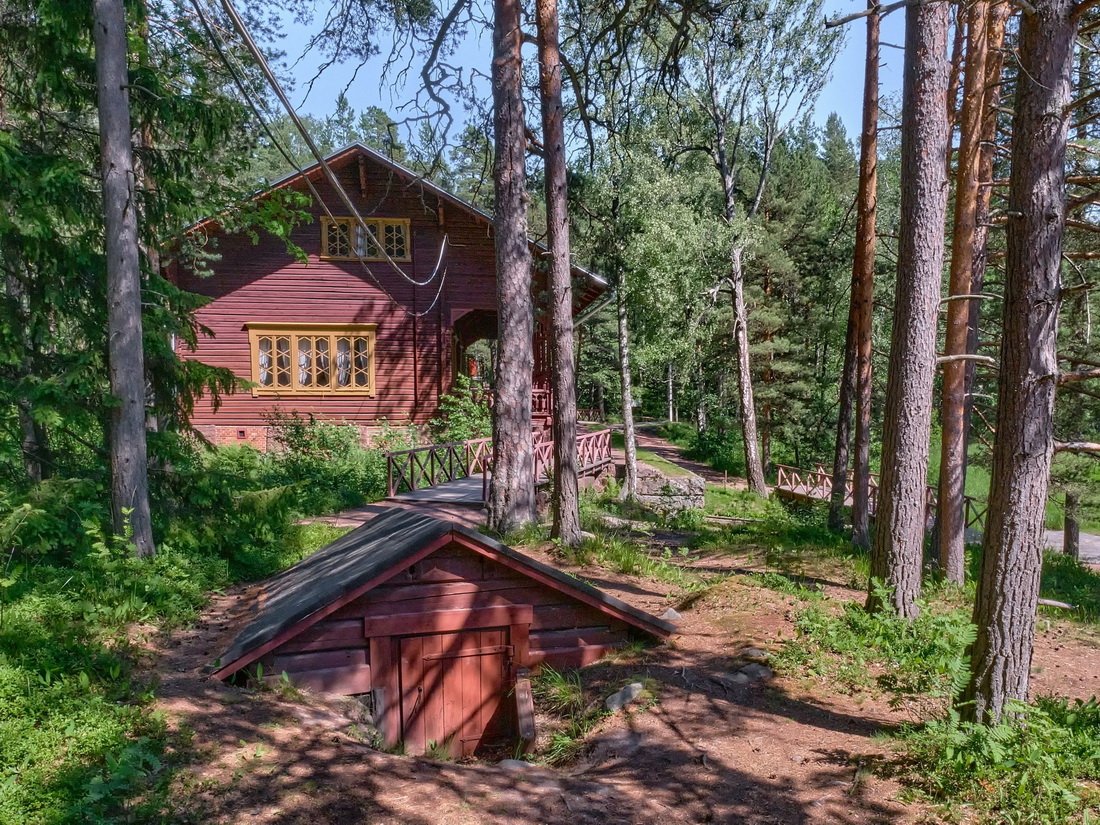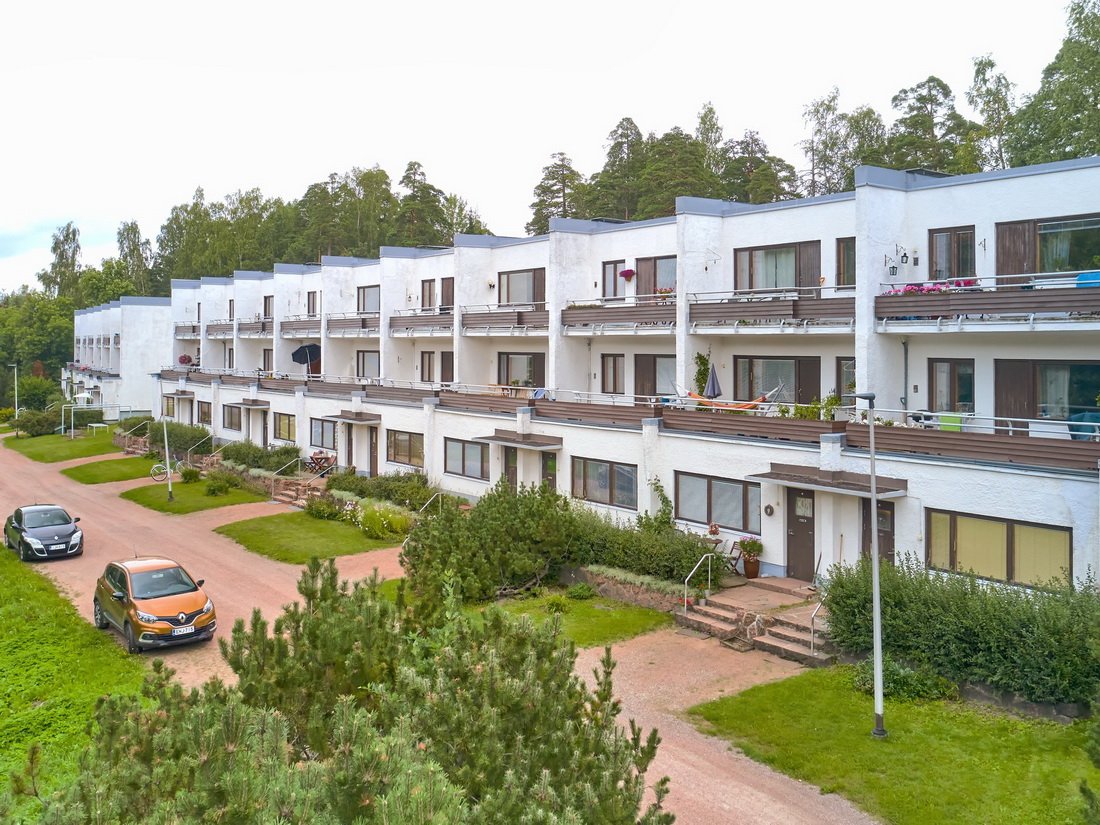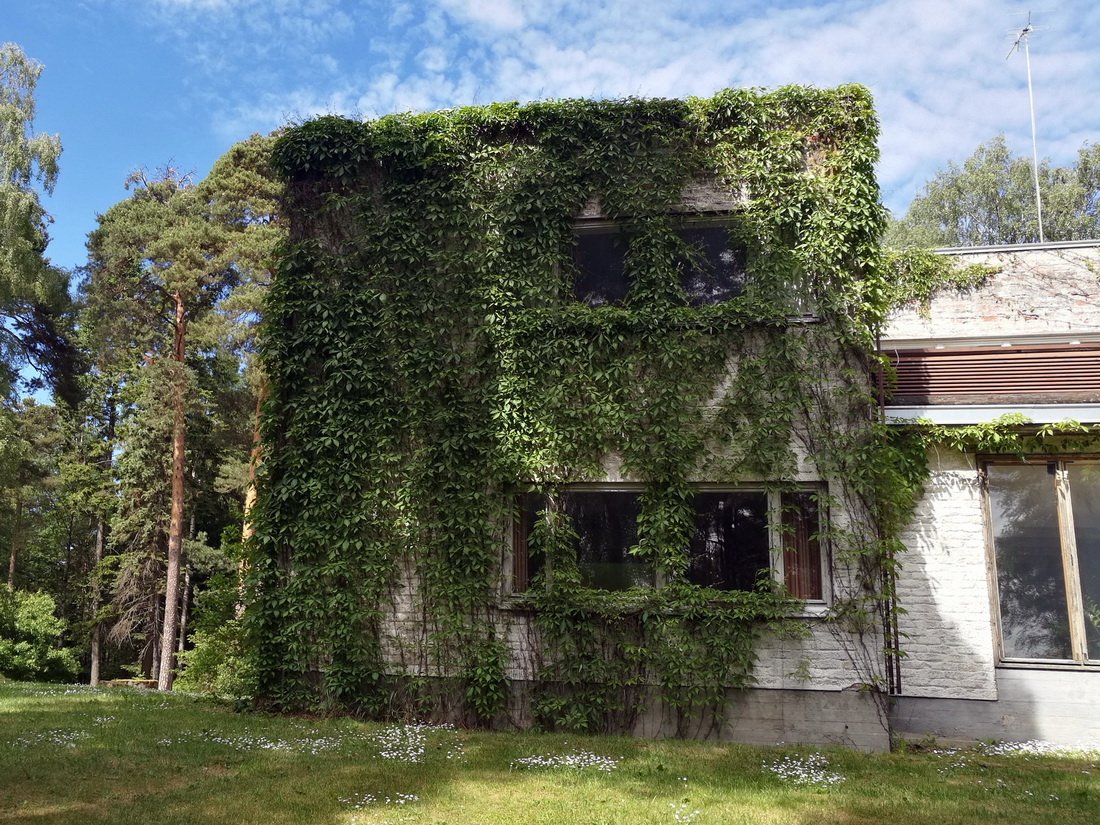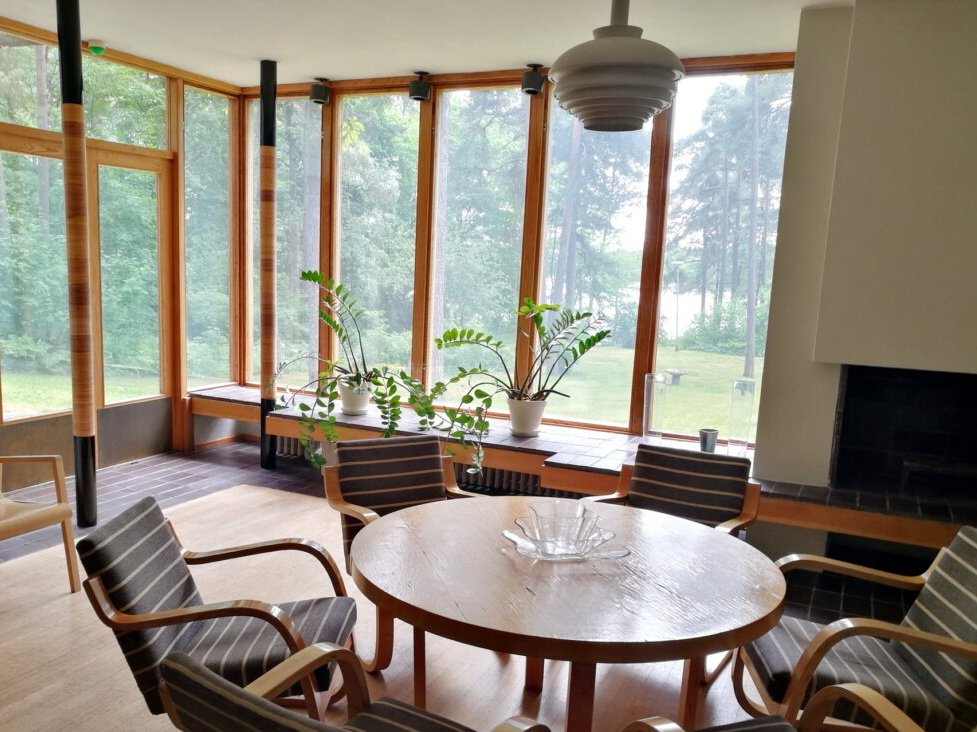This is Kotka — a port city of 50,000 on Finland’s southern coast, where cargo ships sail past sculpture gardens, and quiet parks grow rhododendrons where you’d expect only pine and moss.
It’s not a resort, and it’s proud of that. It works hard, moves goods, and keeps the country running. But it also knows how to slow down. To plant flowers. To turn an old oil terminal into a park, and a fortress into a herb garden.
Want to see it for yourself? Here’s my guide to the best spots in Kotka to visit in summer — a mix of parks, museums, seascapes, and quiet surprises.
🌞 9 Places to Visit in Kotka During the Summer
🌸 Sapokka Water Garden
If you’re visiting Kotka in summer, Sapokka Water Garden should be your first stop. You can stroll through it in 20 minutes — or take an hour, depending on how often you stop to say “wow” and take another photo.
A waterfall tumbles dramatically down a rocky hill, ducks glide across the ponds like they own the place, and the flowerbeds? Think Italy meets the Arctic — in early June, azaleas, rhododendrons, and golden laburnum burst into bloom as if no one told them they’re in Finland.
Tucked into the greenery are 13 little bronze animals by Finnish sculptor Hannele Kylänpää — a rabbit here, a seal there, all casually pretending they’re not part of a very charming scavenger hunt.
Sometimes there are concerts by the pond, with a small stage and surprisingly good acoustics courtesy of the surrounding stones. And if you come early in the morning, you might just get the whole garden to yourself — you and the ducks, of course.
🐠 Maretarium Aquarium
When I first walked into Maretarium, I expected neon corals and flashy tropical fish. Instead, I got herring. And flounder. And the oddly charming eelpout — a greenish, pouty-faced local who instantly won me over.
That’s the charm of Maretarium. No exotic show-offs — just the real, slightly weird residents of Finland’s lakes, rivers, and coastal waters. You get a pencil, a checklist of 80 species (in English), and the quiet thrill of ticking off each one.
Some fish are curious — halibut might lock eyes with you. Others, like flounder, couldn’t care less. The seven-metre-deep main tank is the star: swirling with herring, sprats, perch — and maybe a lone pike (never two, or it ends badly).
Before you leave, drop by the gift shop. Fish-shaped magnets, postcards, mugs — everything you never knew you needed with a perch on it.
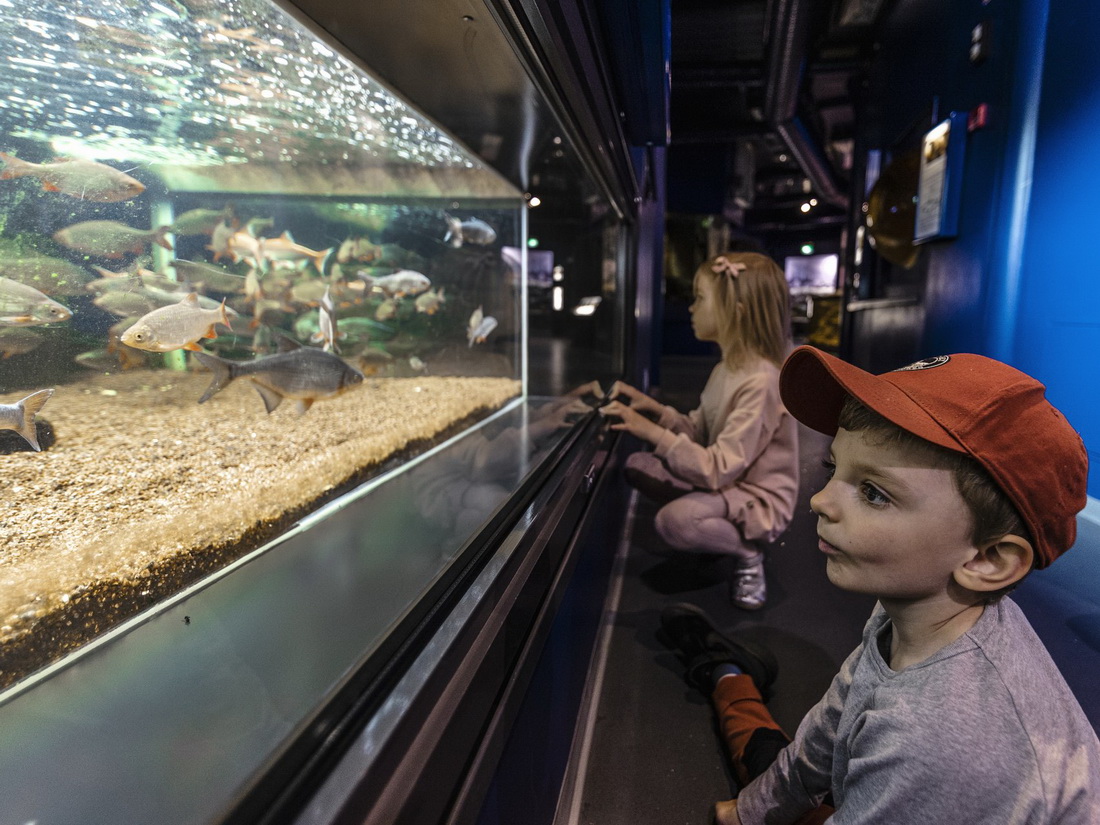
Some fish eagerly approach you, while others swim away if you get too close. Photo: Harri Tarvainen, Visitkotkahamina
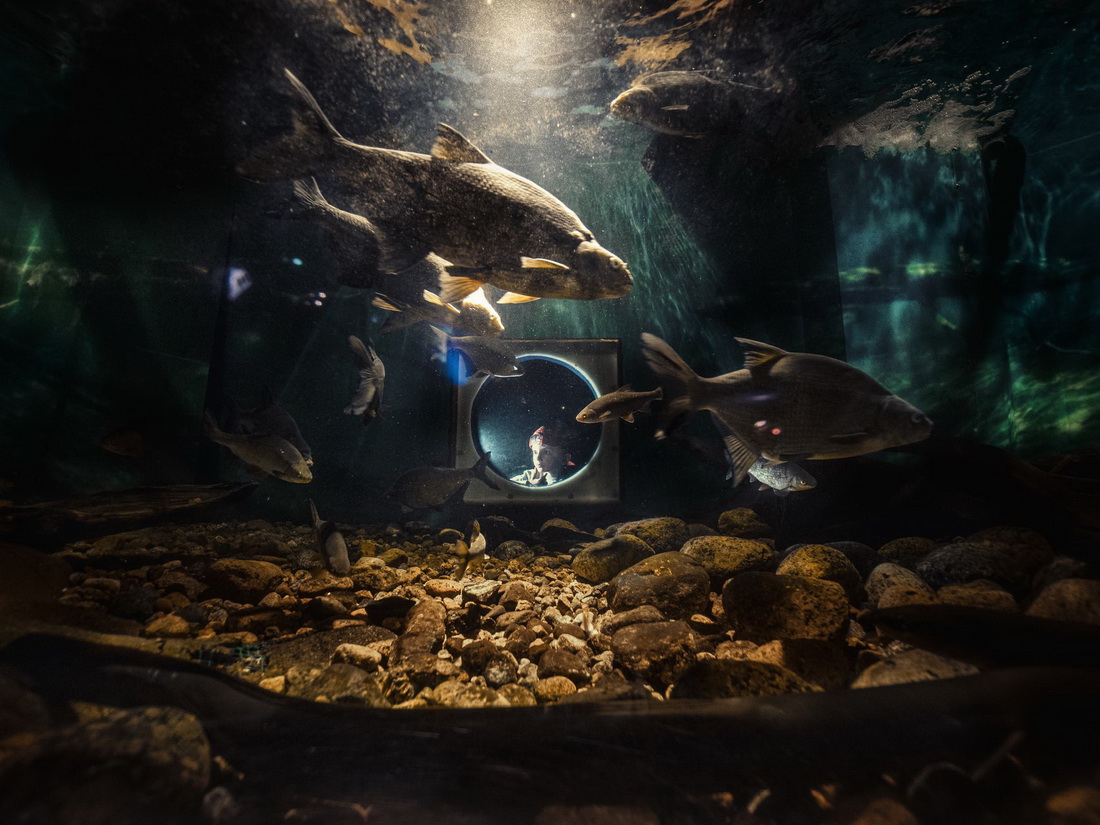
Even though I’ve lived near the Baltic Sea my whole life, I only discovered the local fish species after visiting Maretarium. Photo: Harri Tarvainen, Visitkotkahamina
🌳 Catherine’s Park (Katariinan Meripuisto)
Catherine’s Park is the biggest green space in Kotka, and probably the only former oil terminal where you can stroll past lighthouses.
It’s just 2 km from the city centre, but it feels like another world. Families barbecue, kids race scooters, and retirees claim the best benches for sea-breeze appreciation. Tourists are welcome too — especially the curious kind.
The Lighthouse Village is a definite highlight: human-sized replicas of real Finnish lighthouses stand proudly in a grassy field, just waiting to be admired (and photographed).
A quieter corner is Anchor Island — marked by a weathered anchor and a few candles. Each year, around 100 people have their ashes scattered here. No plaques, no gates — just the sea and a gentle farewell. It’s beautifully understated, like most things in Finland.
There’s no official beach, but the water’s right there if you feel like a dip. I wandered for over an hour — and still didn’t want to leave.
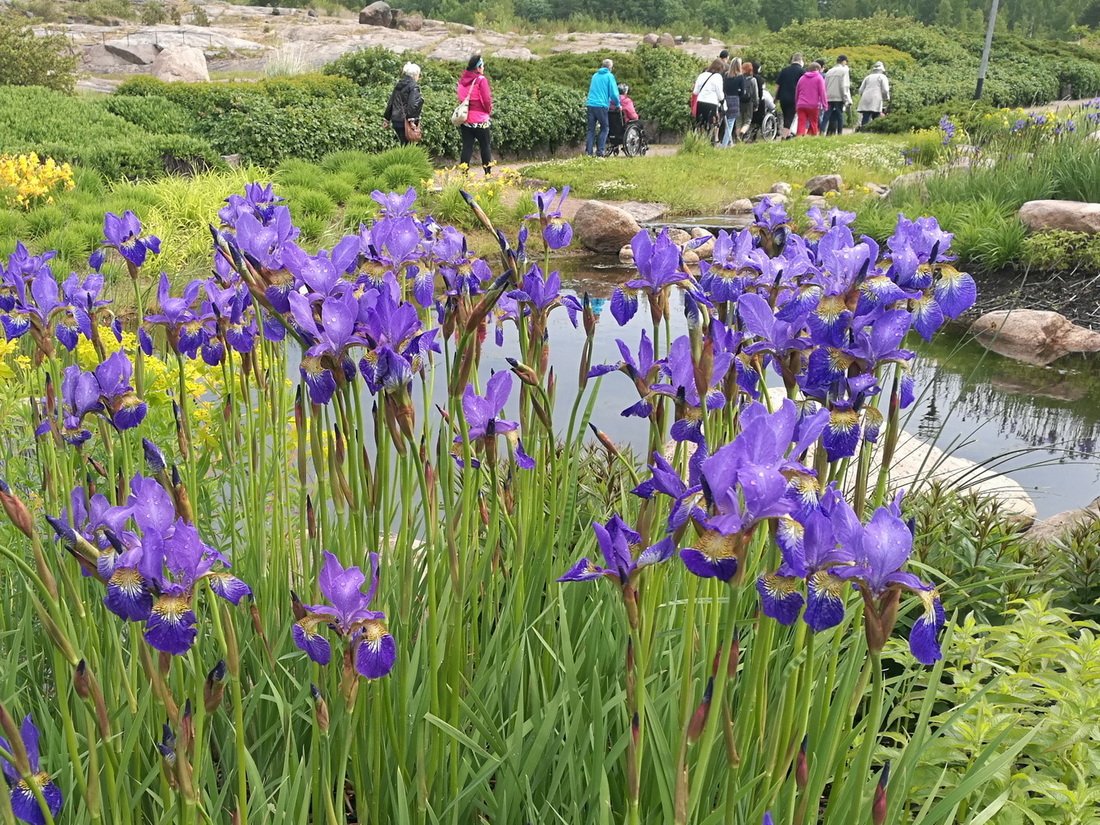
I spent an hour and a half exploring the park, but if you’re short on time, you can enjoy a quicker visit.
🌊 Maritime Centre Vellamo
It looks like a wave. A giant, shiny, slightly surreal wave that somehow washed up in the middle of an industrial port. That’s Vellamo — Kotka’s boldest building, and home to two very good museums.
Inside, you’ll find the Maritime Museum of Finland, where seafaring history comes to life — from ancient navigation gear to sleek modern tech. There’s even a full-size rescue boat hanging overhead. Just mind your head.
Next door is the Kymenlaakso Museum, all about local life through the decades. What did people eat? What did they wear? Apparently, canned meat and Pepsodent toothpaste were big hits. Who knew?
And tucked away in the boat hall is a lovely little gem: Victoria, a wooden boat once owned by Tove Jansson — yes, the Moomin creator herself. She used it to reach her summer island in the Gulf of Finland, and somehow, it makes the whole museum feel just a bit more magical.
Before you leave, check out the shop. It’s full of maritime treasures: lighthouse mugs, sailor stamps, sea-themed notebooks — everything you never knew you needed.
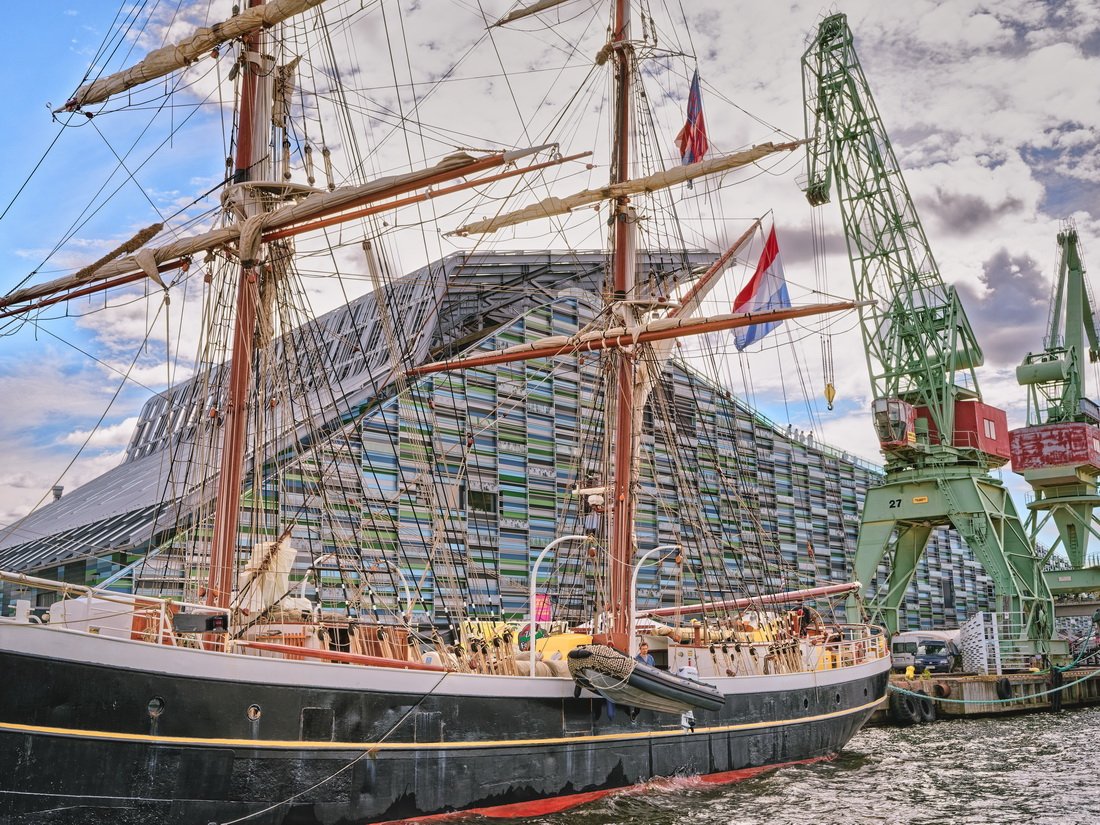
The architecture of the Maritime Centre Vellamo blends surprisingly well with its industrial surroundings.
🌺 Isopuisto Park
Right in the centre of Kotka, Isopuisto is where locals come to walk, chat, and enjoy a bit of nature — whether it’s a lazy Sunday or just after work. The vibe is very English garden: wide lawns, old trees, granite boulders, and lots of space to breathe.
What makes this park special? For starters, it’s Kotka’s oldest, and it wraps around the lovely Orthodox Church of St. Nicholas, which has stood here since 1801.
But Isopuisto’s real claim to fame is its flowers. Azaleas, bulbs, and more than 50 species of blooming plants take turns putting on a show from April to November. Come in late May or early June and you’ll see the azaleas at their peak — it’s like the park is blushing.
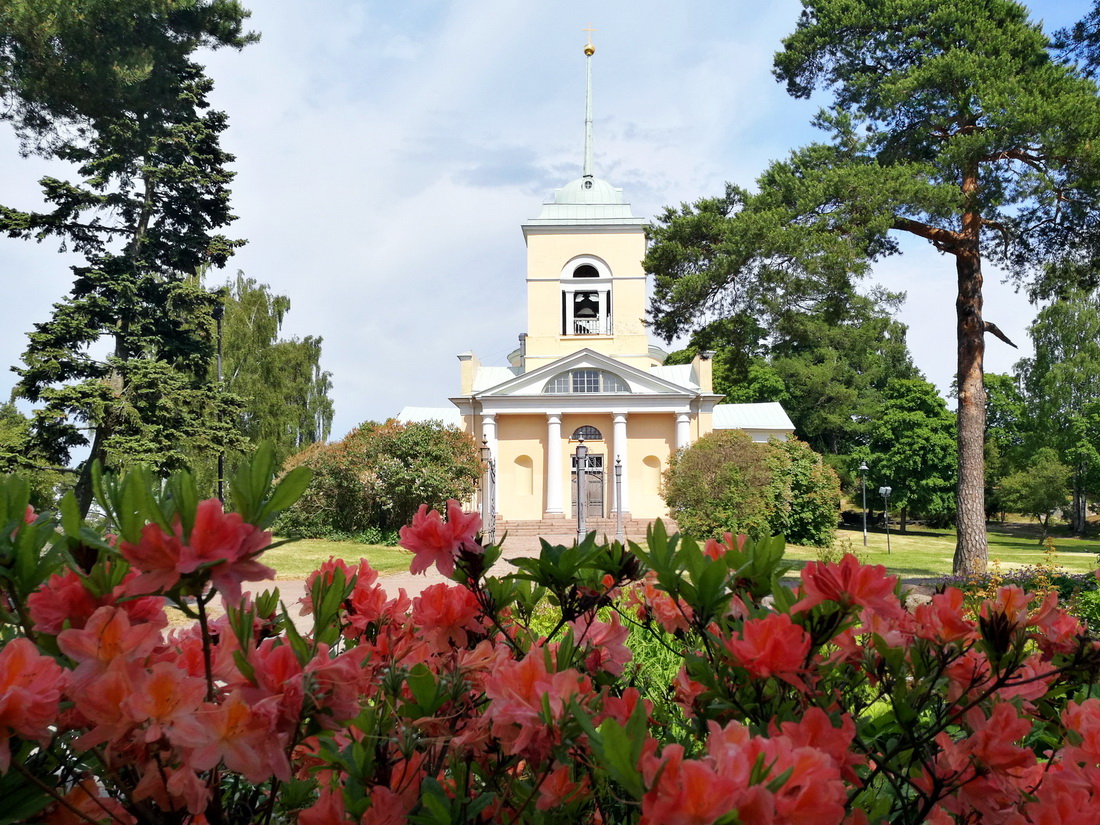
An unusual pairing: the Orthodox Church of St. Nicholas surrounded by blooming azaleas in Kotka’s Isopuisto Park.
🌿 Jokipuisto Riverside Park
Claude Monet would probably smile if he saw this place. Inspired by his garden in Giverny, the gardeners of Kotka rolled up their sleeves and said, “Let’s do it — with more water.” The result? Jokipuisto: a riverside park so charming, it looks like it fell out of an Impressionist painting and landed gracefully on the Kymi River.
The park was opened in 2013 and flows over several gentle levels. Water winds its way from the top pond through a series of channels, over a small waterfall, and down to the Kymi River. It’s peaceful, pretty, and full of those “wait, I have to take a photo” corners.
Keep an eye out for Tukinuittaja (“The Log Floater”), a bronze sculpture honouring the timber-floating trade. It was cast in 1952 but based on an 1890 design by Emil Wikström — the same guy behind Helsinki’s famous lamp-holding stone men. Clearly, he had a thing for strong, quiet types.
Jokipuisto is located in the Karhula district, about 9 km from central Kotka. You can get there by car, by bus… or let your inner gardener guide you.
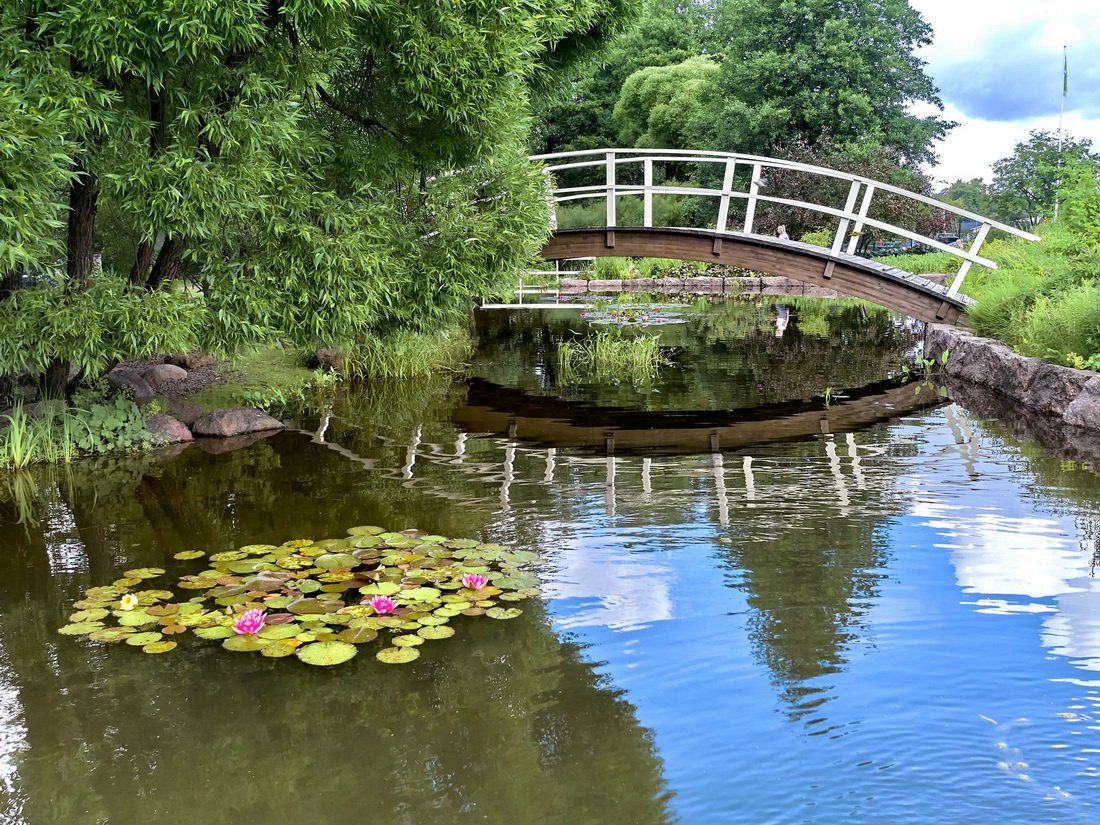
Claude Monet’s garden-inspired paintings influenced the design of this dreamy space./Photo: Niclas Valpola
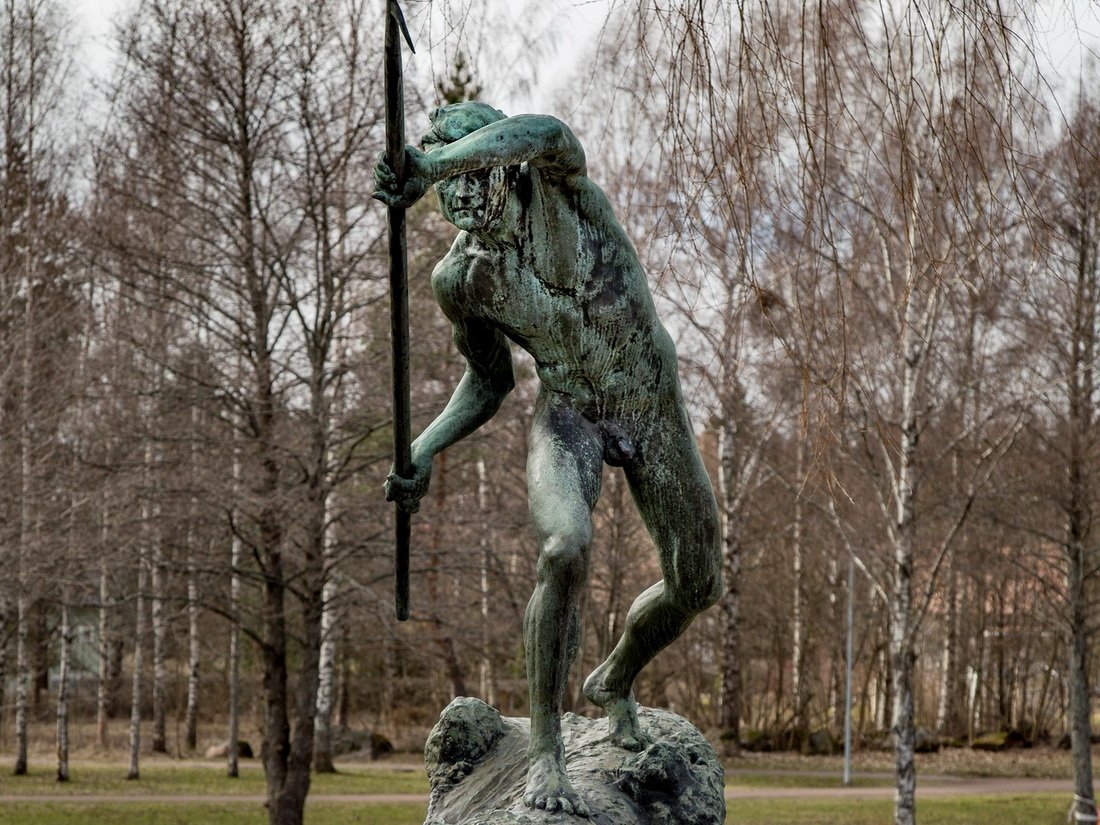
‘The Log Floater’ sculpture shows a worker guiding logs down the river – a traditional method once used for timber transport./Photo: Jukka Hesselgren
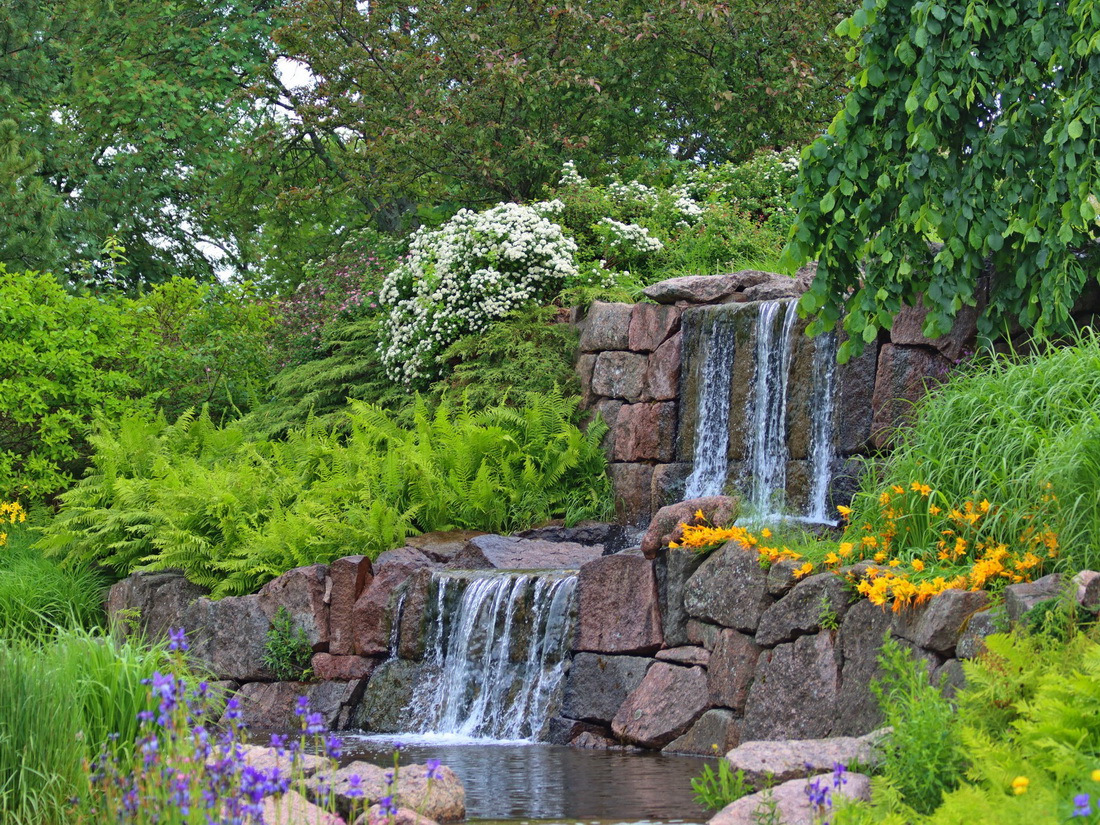
You’ll need at least a hour to explore Jokipuisto Park — it’s full of quiet corners and photo-worthy blooms
🌾 Redutti-Kotka Herb Garden
Tucked behind old redbrick walls near Haukkavuori Tower, the Redutti-Kotka Herb Garden feels like a secret. Once a military redoubt, it’s now a peaceful patch of green filled with over a hundred fragrant herbs from around the world.
This isn’t a fancy botanical garden — it’s more like nature’s spice rack. Rosemary smells like pine-scented sunshine, mint hits you with a menthol blast, and lemon balm? Pure lemonade in leaf form. Giant hyssop even adds a touch of anise to the breeze.
If the weather’s warm, take a slow lap, breathe deeply, and let your inner herbalist roam free.
🎣 The Imperial Fishing Lodge
Just 5 km from the centre of Kotka, tucked between pine trees and river rapids, sits a royal retreat — and not the chandelier-and-marble kind. The Imperial Fishing Lodge at Langinkoski was Emperor Alexander III’s favourite summer escape. No parades, no politics — just fishing, firewood, and pretending to be a regular guy.
Built in 1889, the lodge is a charming two-storey wooden house where the emperor chopped logs, and his wife, Maria Feodorovna (aka Princess Dagmar of Denmark), happily took over the kitchen.
Outside, the Langinkoski rapids crash through the forest like they’re in a Viking shampoo commercial, and the air smells of pine, river, and absolute peace. It’s the perfect spot to forget your emails exist.
You can get there by bike or bus — and if you bring a snack, you might never want to leave.
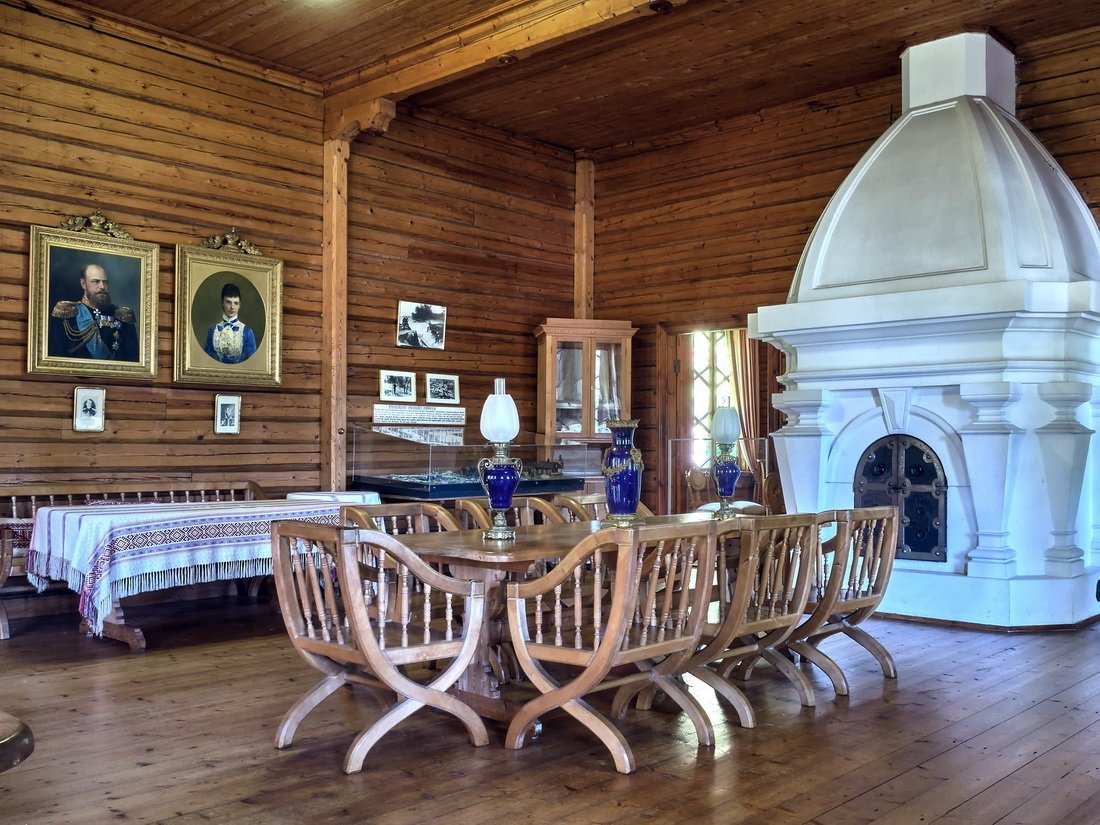
Inside the museum, you can see the emperor’s study, living room, kitchen, and bedroom — all surprisingly modest.
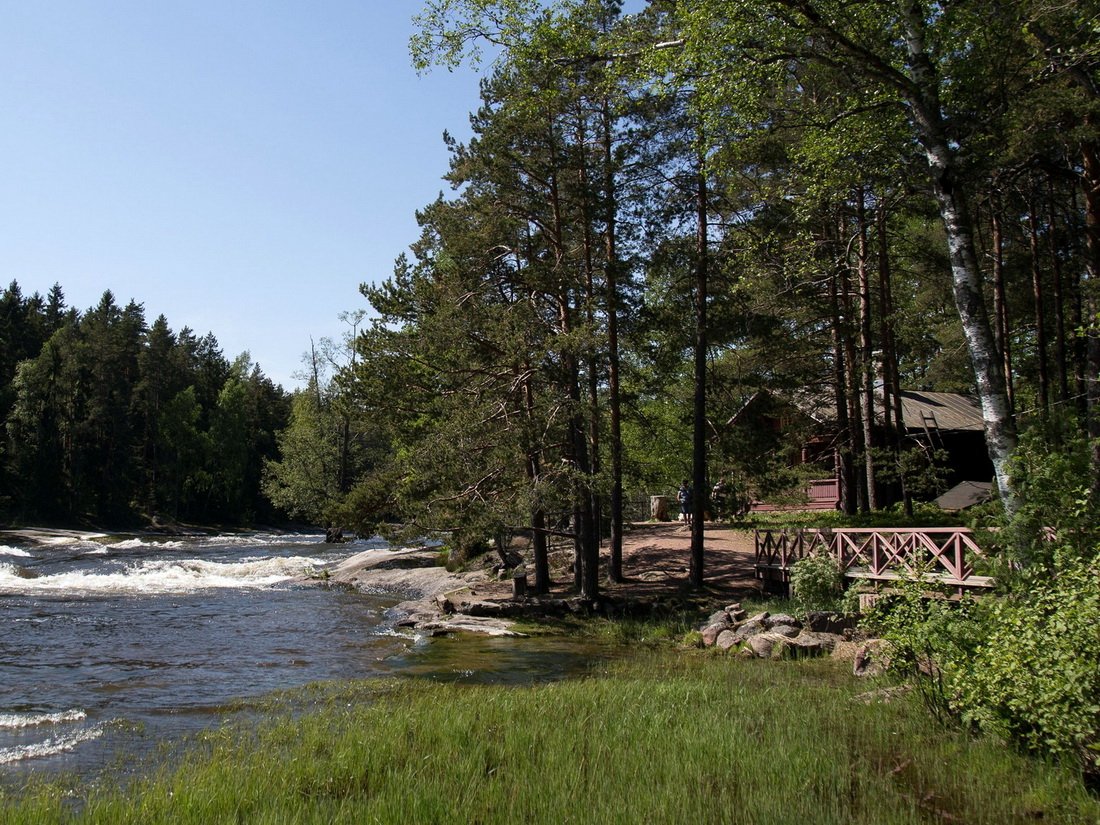
The Kymi River rushes wildly through this stretch. I spent two hours here — next time, I’ll stay longer.
🏠 Sunila District
Sunila isn’t in most guidebooks — but if you’re into architecture, especially the kind that quietly changes how people live, it’s worth a detour. This peaceful coastal neighbourhood, surrounded by forest and sea, was designed in the 1930s by Alvar Aalto, Finland’s most iconic architect.
It was a bold idea at the time: build beautiful, functional homes for factory workers near the local pulp mill. The result? White, minimalist buildings with clean lines, large windows, communal saunas, and views of nature — all based on the idea that good design should be for everyone.
Nearly 90 years on, Sunila still feels ahead of its time. Around 1,000 people live here now, and the blueberry bushes basically begin at the doorstep. If you’re spending summer in Kotka and want a break from beaches and baroque — come here instead. It’s calm, clever, and full of quiet dignity. And in its own way, that’s beautiful too.
🎒 Final Thoughts
Kotka has more layers than you’d expect — from waterfalls and flowerbeds to tsarist retreats and fish with personality. Ideally, give yourself two days to explore. But even if you only have a few hours, it’s enough to get a taste (and maybe a postcard with a perch on it).
And yes, summer is the best time to visit. You can picnic by the sea, swim if you’re brave, and dodge the occasional seagull. Just bring an umbrella — because Finland.
Planning to visit Finland in winter? Then read this first — it’s not just about snow and darkness, but what really surprises you once the temperatures drop: What to expect from a Finnish winter →
